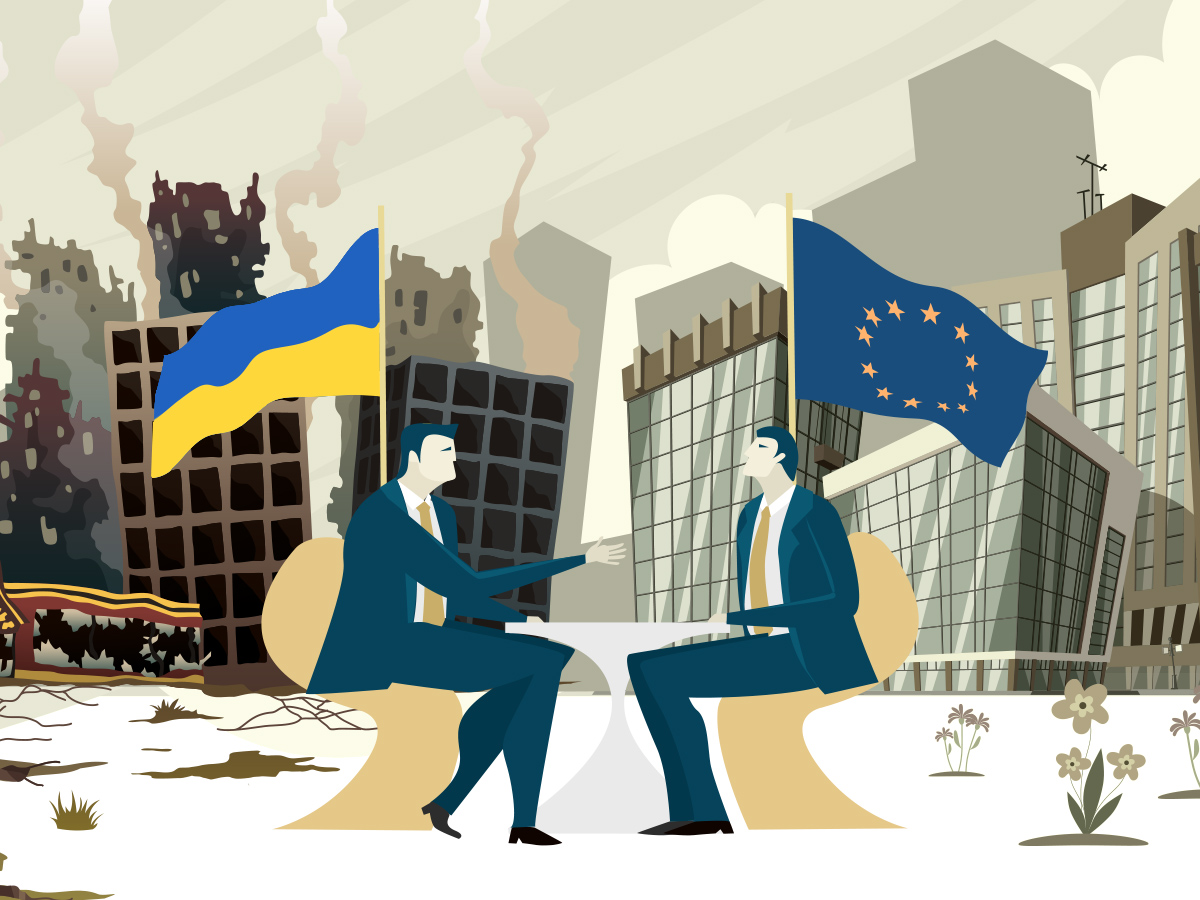In its ’historic’ report published on 8 November, the European Commission suggested to the European Council to start formal accession negotiations with Ukraine. It is the member states’ leaders who will make the final decision at a summit on 14-15 December.
According to the Commission’s report, out of the 7 criteria for EU membership Ukraine meets 4 (legislation on a selection procedure for judges at the Constitutional Court; finalization of the vetting of candidates for the High Council of Justice; anti-money-laundering legislation; media law) but there is non-complience with EU law and requirements on 3 important fields (fight against corruption; anti-oligarch law; protecting national minorities).
Before the EUCO meeting, it is worth taking a brief look at the positions of both Brussels and Ukraine.
As for the position of Brussels, it is apparently in a hurry to start accession negotiations with Ukraine despite the lack of unity in the EU on this issue.
Only one explanation can be given why EU’s top officials act so swiftly concerning Ukraine’s accession.
In June 2024, the European Union will hold elections after which both the European Parliament and the European Commission will be newly constituted. The mandate of the President of the European Council expires in November 2024.
However, it is not an ordinary official deadline that leads Ursula von der Leyen and Charles Michel to rush, who, exceeding all rational speed limits are taking ill-considered steps beyond the boundaries of common sense.
The real reason why the current EU leadership is in such a hurry to start accession negotiations with Ukraine is much more personal and connected with the ego of the above-mentioned top European officials: they are eager to ensure that this historic event would be noted in the history books under their names.
Concerning Ukraine’s position, a distinction should be made between the position of official Kyiv and the opinion of the Ukrainian people.
Deputy Prime Minister for European and Euro-Atlantic Integration of Ukraine Olha Stefanishyna believes that ’a quick start of negotiations with Kyiv would prevent EU’s enlargement fatigue’. This is an official point of view, whatever this might mean.
In order to illustrate how Ukrainians think about the membership of their own country in the European Union, it may be informative to quote the results of two recent surveys – both were condacted in September and October 2023 by the Ukrainian Razumkov Center.
According to one of these surveys, 60.5 percent of Ukrainians believe that Ukraine can join the EU in less than 10 years and only 6.1 percent say that Ukraine can never join the EU. These figures clearly indicate that Ukrainians are optimistic as for their Euro-integration.
The other survey reveals that Ukrainians see high-level corruption as key obstacle to Ukraine’s accession to the EU (51.7 percent of respondents). Interestingly, only a very little percentage of Ukrainians believe that lack of reforms and the insufficient level of democracy in Ukraine would be an obstacle on Ukraine’s accession to the EU.
Ignoring the opinion of experts of EU law that claim that it would take Ukraine about 15-20 years to fully meet the requirements of accession, researchers of the Vienna Institute for International Economic Studies say that ’ Ukraine closely aligns with the typical characteristics of the countries of Central, Eastern and Southeastern Europe’ and, after the war, it will be able to follow the successful integration path of the countries of the mentioned region.
European Commission President Ursula von der Leyen recently said that the 10 applicants for EU membership ’have understood the call of history’.
In addition to Ukraine, there are several other countries, including the Western Balkans states that are applying for EU membership. According to von der Leyen, these states have also heard and understood the call of history – however, history seems not to have heard their call.
As for Ukraine, it turned out at a very early stage that getting into the next round was a must for Kyiv – otherwise Ukraine can miss the historic opportunity: not only the golden ticket to the EU but the entire supportive athomosphere which enables this, may disappear for ever.
In parallel with such Ukrainian ambitions and taking into considerations considerable personal ambitions, the one and only practical directive the current EU leadership has followed in its own work was not to allow Ukraine to fail.
Ukraine, ’miraculously’, did not fail but made it out of the situation victorious, despite the many shortcomings – unlike the Western Balkans that seem to have failed this time.
By all indications, none of the EU leaders want to assess the possible consequences of the enlargement for the EU, but each wants to present the historic opening of accession negotiations with Kyiv as his or her own success. Here and now, history as such, matters only in that sense.
However, the EUCO meeting in mid-December can still bring miracles since, after all, it is the member states’ leaders who will ultimately have to say yes or no to starting accession negotiations with Kyiv.
